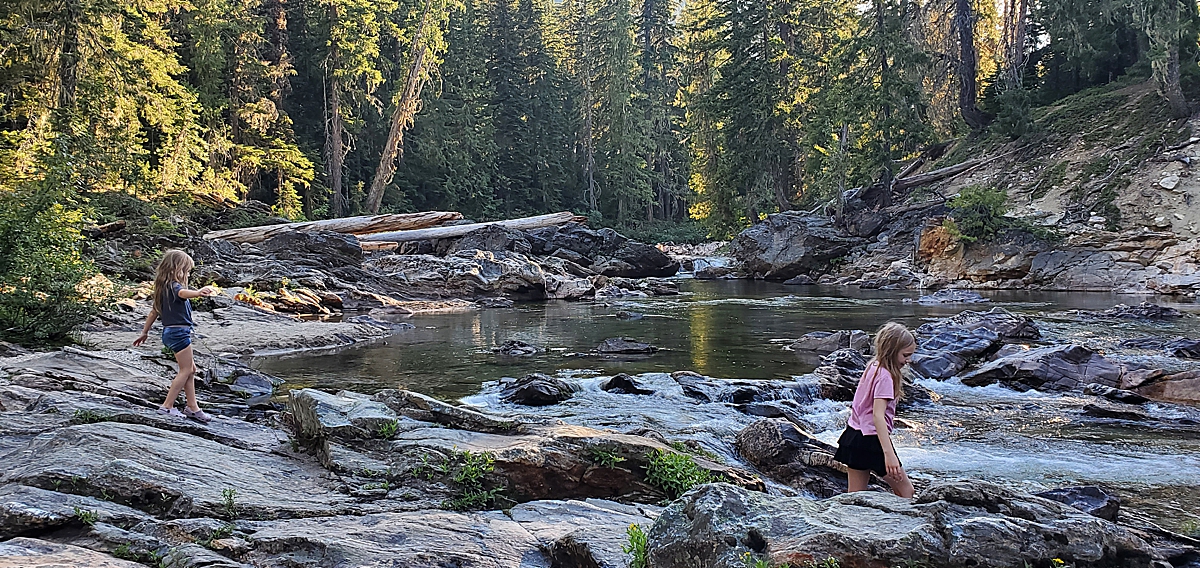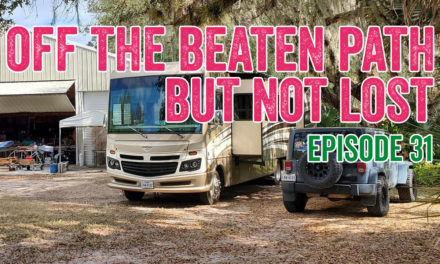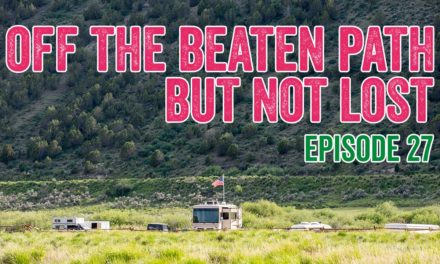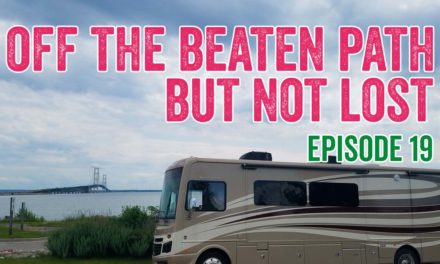Since hitting the road full-time, we’ve been fielding many questions about our unique lifestyle, especially from families considering RV living with kids. We’ll answer 10 of your questions, covering everything from homeschooling to finding kid-friendly campgrounds.
Whether you’re curious about transforming your RV into a classroom or seeking the secrets to uncovering the best family-friendly outdoor havens, we’re here to share our knowledge and help you navigate the exciting world of RV living with kids.
Looking for something specific? 👇
1. Homeschooling on the Road: How Do We Make it Work?
One of the first questions we often get asked is how we tackle homeschooling while living on the road. It may not be your typical classroom setting, but let us tell you, learning on the road can be magical!
It’s about turning our surroundings into dynamic classrooms. We utilize a mix of resources, textbooks, and hands-on experiences. National parks become living science labs, museums turn into history lessons, and even grocery shopping becomes math practice. The key is flexibility and planning around our travel schedule.
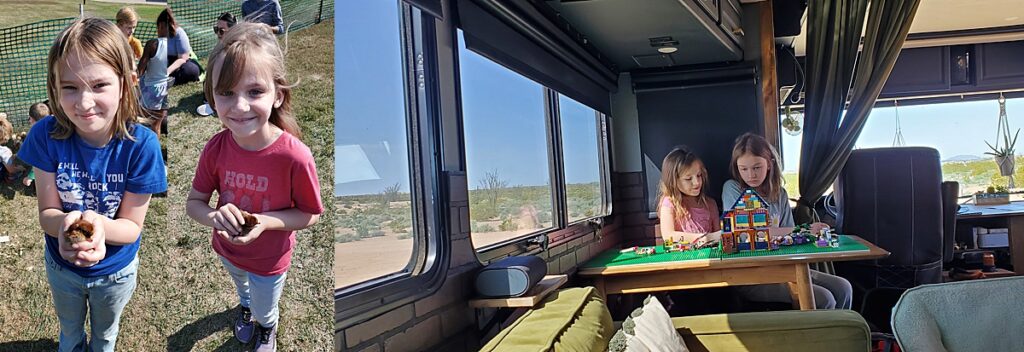
2. Space and Balance
Living in tight quarters with little ones can be, well, interesting. Space is a precious commodity, so organization and multi-functional furniture are key. We also embrace the outdoors as our extended living room, letting playtime spill outside whenever possible.
We set clear rules and expectations, being creative with our space and ensuring everyone has a say in our travel plans. Another struggle is finding a balance between adventure and stability. To address this, we create a routine that includes regular meal times and designated school and work days. This gives our kids a sense of normalcy and structure, even as we explore new places.
3. Keeping Kids Entertained in a Small Space
Creativity is our secret weapon for keeping the kids engaged and entertained in a confined space. We dive into a variety of activities that not only amuse but also educate. Board games have become a way to teach strategy and critical thinking.
Stargazing is a gateway to astronomy, sparking curiosity about the universe. Exploring our surroundings allows us to embrace the natural world, teaching the kids about ecology, geography, and the importance of conservation.
Our travels offer a canvas for the girls to express themselves creatively. Photography becomes a lesson in observation and art, encouraging Kylie and Lexie to capture moments through their perspectives. They are also creating fantastic art that we will release soon on ExploreMore Threads.
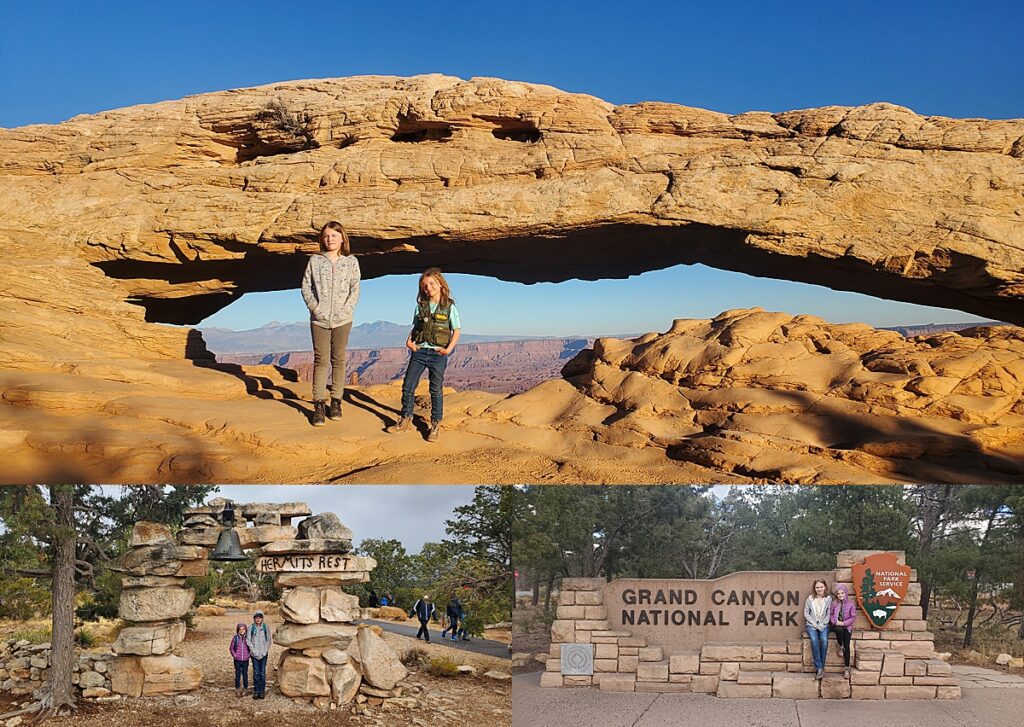
Journaling is another exercise that includes drawing, collecting, and storytelling, helping them articulate their experiences and reflections. This documentation is a personalized educational tool and creates a cherished keepsake of our adventures.
Moreover, these activities foster a sense of autonomy and contribution. We involve the kids in planning our daily itineraries, choosing which sights to see, or deciding on the next craft project. This inclusion strengthens their decision-making skills and makes them active participants in our journey. By integrating education, entertainment, and family bonding, we ensure that our RV life is a rich tapestry of experiences that nurture curiosity, creativity, and a lifelong love for learning and exploring.
4. Unique & Educational Travel Experiences
We encourage curiosity, ask questions, and let the kids lead. Our journey is filled with unique educational experiences that textbooks can’t provide.
From exploring the intricate ecosystems of the Everglades to learning about the geological wonders of the Grand Canyon, each destination has offered invaluable lessons. These experiences educate and instill in Kylie and Lexie a deep appreciation for nature and history.
Some of our favorite educational experiences include exploring the Great Smoky Mountains National Park and learning about the history of the Oregon Trail. These experiences have been both fun and informative for our kids!
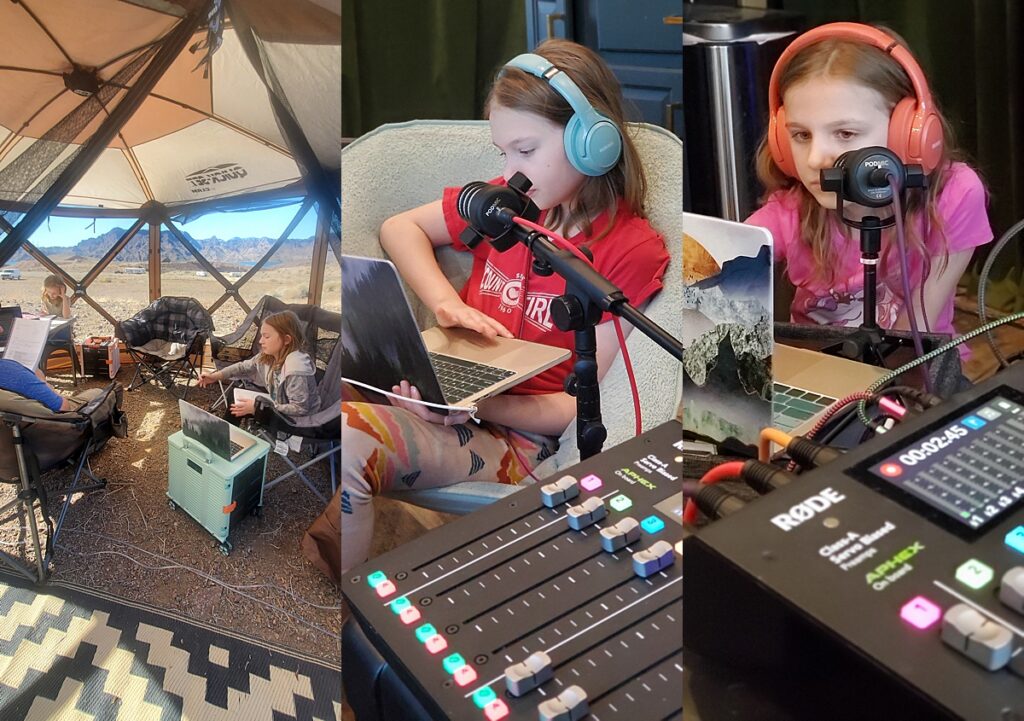
5. Finding Kid-Friendly Destinations
Research is your friend! We use websites and guidebooks and even ask fellow RVers for recommendations. Look for campgrounds with pools, playgrounds, or on-site activities. National parks often have junior ranger programs, and many museums offer interactive exhibits geared toward kids. Anything dinosaur is a win with our family.
Our top tip for finding kid-friendly campgrounds and destinations is to do your research and lean on the RV community for recommendations. Websites and apps dedicated to RV travel have been invaluable resources for us, offering insights into amenities, activities, and reviews from other families.
We check reviews and recommendations from fellow RVers when looking for kid-friendly campgrounds.
6. Safety Concerns
Our top priority is ensuring our family’s safety as we traverse the country in our RV. With kids on board, we take extra precautions to create a secure environment. Our RV has fire extinguishers and comprehensive first-aid kits for minor accidents or emergencies. We conduct regular safety drills so everyone knows what to do in case of a fire or other urgent situations, ensuring that safety procedures become second nature to our girls.
Before arriving at a new destination, we thoroughly research the area to identify potential hazards, such as wildlife, challenging terrain, or weather-related concerns. This preparation allows us to discuss as a family how to behave responsibly and safely, whether hiking in the mountains or swimming at a lake. We make it a point to learn about the local wildlife, teaching our kids which animals to watch out for and how to minimize the risks of encounters.
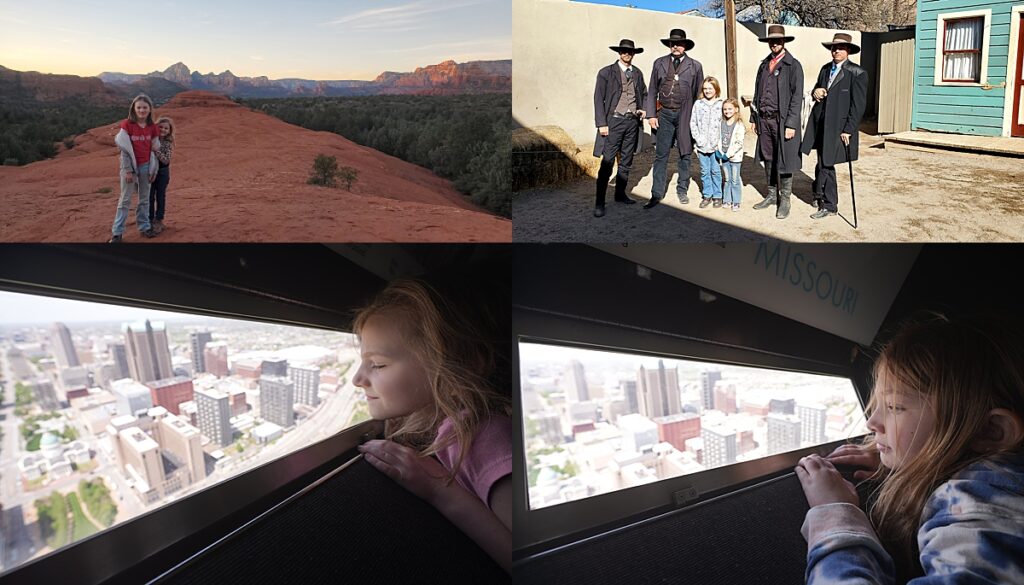
7. Maintaining Routine & Stability
Maintaining a sense of normalcy and routine is vital for our family’s well-being despite the ever-changing scenery. School, work, family meals, and movie nights under the stars help ground us. We also create traditions, like celebrating holidays in unique ways, that connect us to our past and each other.
Keeping a balance between adventure and stability is critical to a harmonious life on the road.
Remember, RVing with kids is an adventure, not a picture-perfect vacation. There will be challenges, messes, and maybe even the occasional meltdown (from both kids and adults). But the rewards—the shared experiences, the close-knit bond, and the memories made under endless skies—far outweigh the bumps in the road. It has brought our family closer, taught us invaluable life lessons, and allowed us to explore the world’s wonders together.
8. How do you manage healthcare and doctor visits while traveling?
Navigating healthcare on the road is our top priority. We want to ensure that we stay healthy and can address any medical needs while exploring. We maintain a comprehensive health insurance plan that provides nationwide coverage and use telehealth services for non-emergency consultations.
We have been able to do routine check-ups in Michigan with the same doctors we had before moving into the RV. However, this will change in the next few years because we won’t return to Michigan. Instead, we will plan our route with stops in cities where we can access trusted healthcare providers. In emergencies, we’re always prepared with a well-researched plan of nearby hospitals or urgent care facilities, ensuring peace of mind no matter where our travels take us.
9. What are the best ways to stay connected with family and friends on the road?
Staying connected with loved ones is crucial, even as we embrace the nomadic lifestyle. We leverage video calls to share our adventures and keep in touch. Regular updates through our podcast, “Off the Beaten Path, but Not Lost,” allow us to share the journey, making our friends and family feel like they’re part of our adventure. We also plan visits along our route to spend quality time with family and friends, ensuring we maintain strong bonds despite the distance.
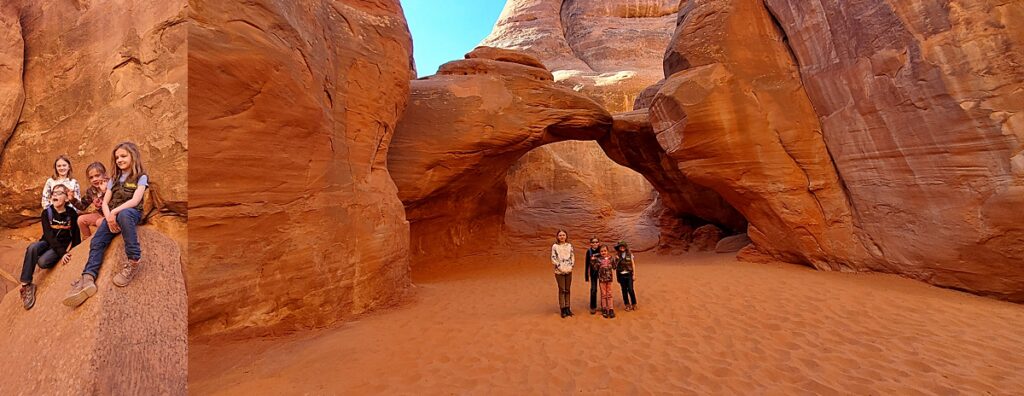
10. What are your top tips for making the most of visits to national parks and other natural attractions with children?
Our visits to national parks and natural attractions are the highlights of our travels, offering unparalleled educational and recreational opportunities. We thoroughly research each park, focusing on kid-friendly trails and educational programs like the Junior Ranger Program. Engaging the kids in planning our visits helps spark their interest and excitement. We pack interactive tools like binoculars, nature guides, and scavenger hunt lists to make the experience more engaging. After each visit, we encourage Kylie and Lexie to share their experiences through drawings or journal entries, deepening their connection and understanding of each place.

